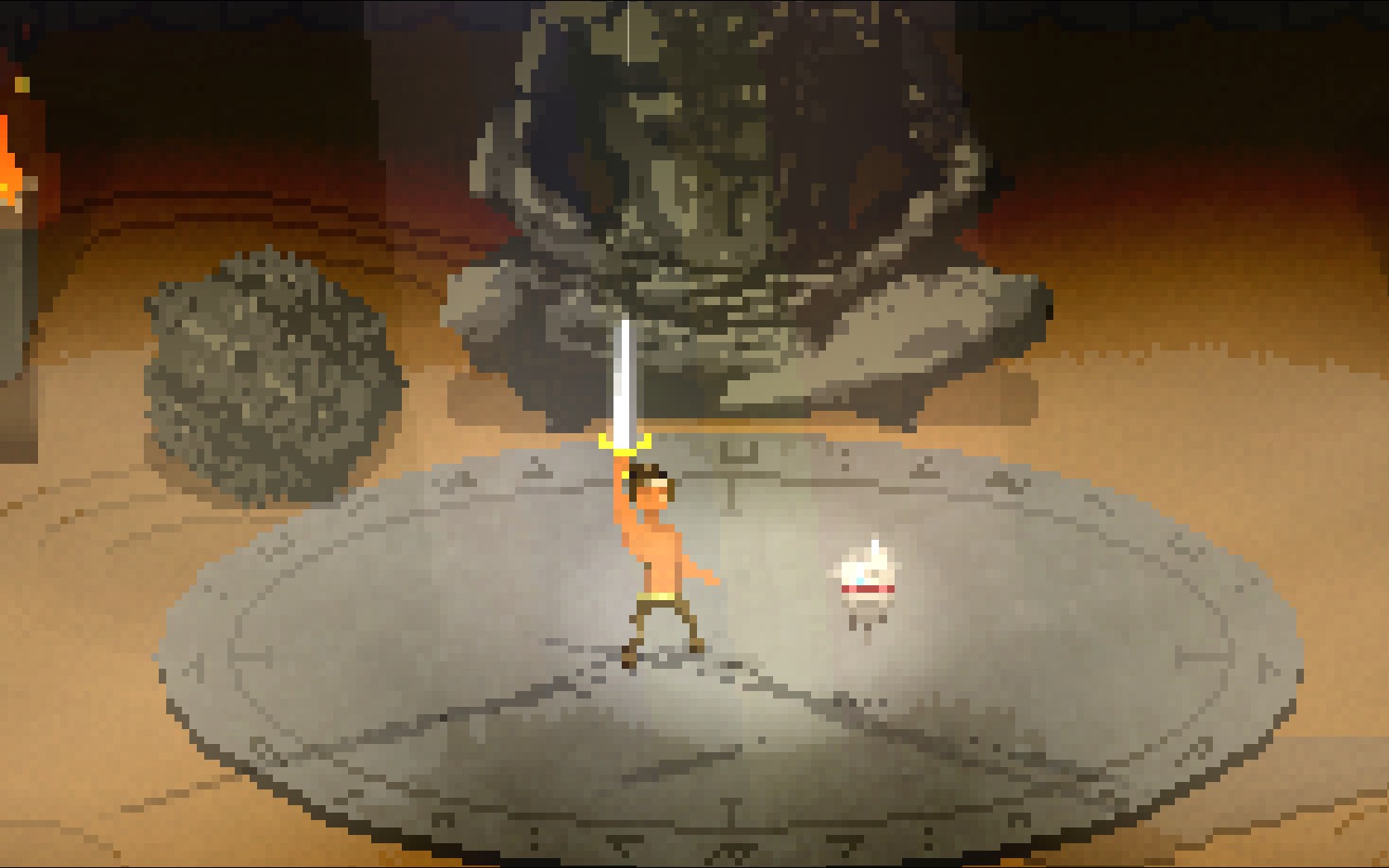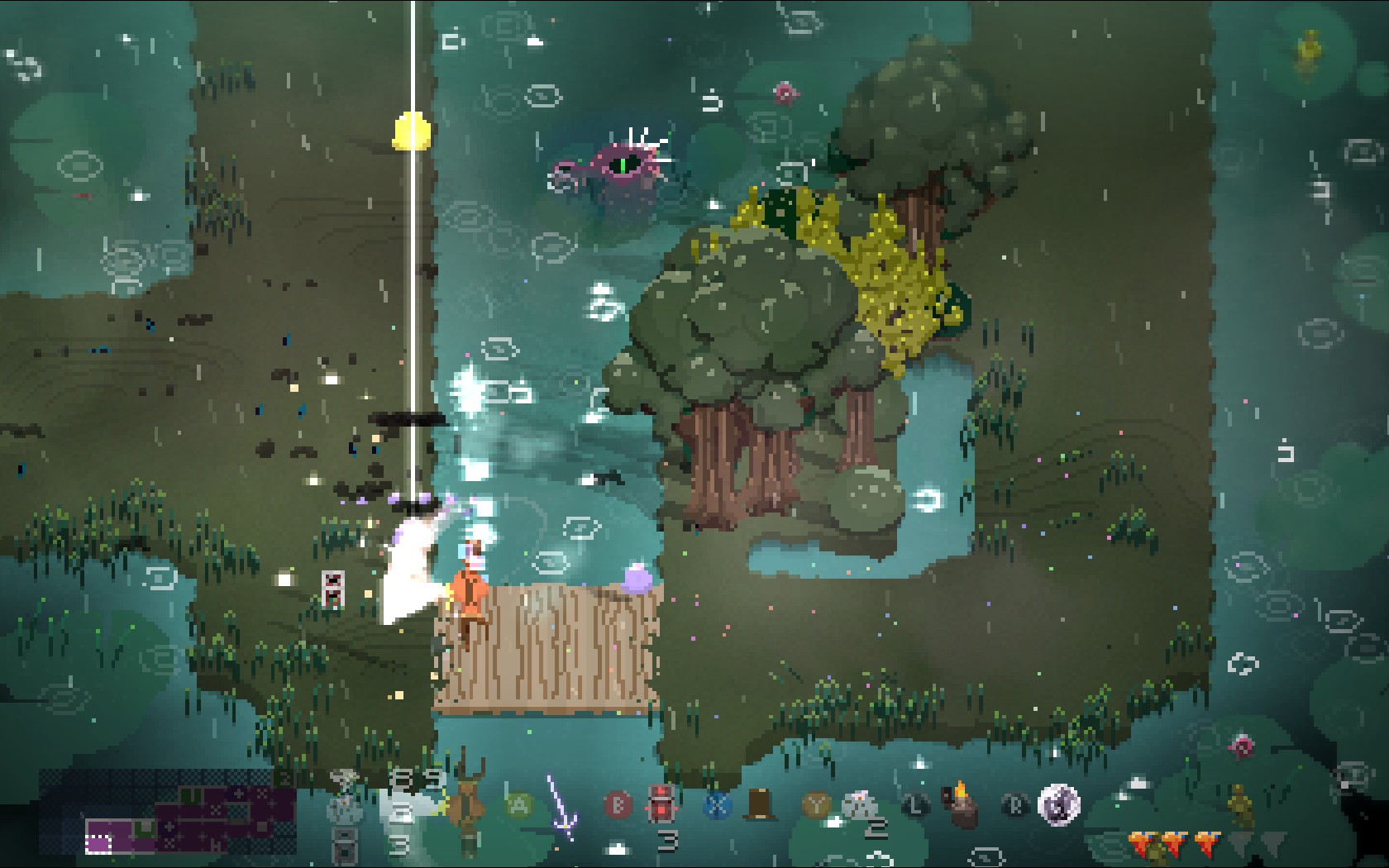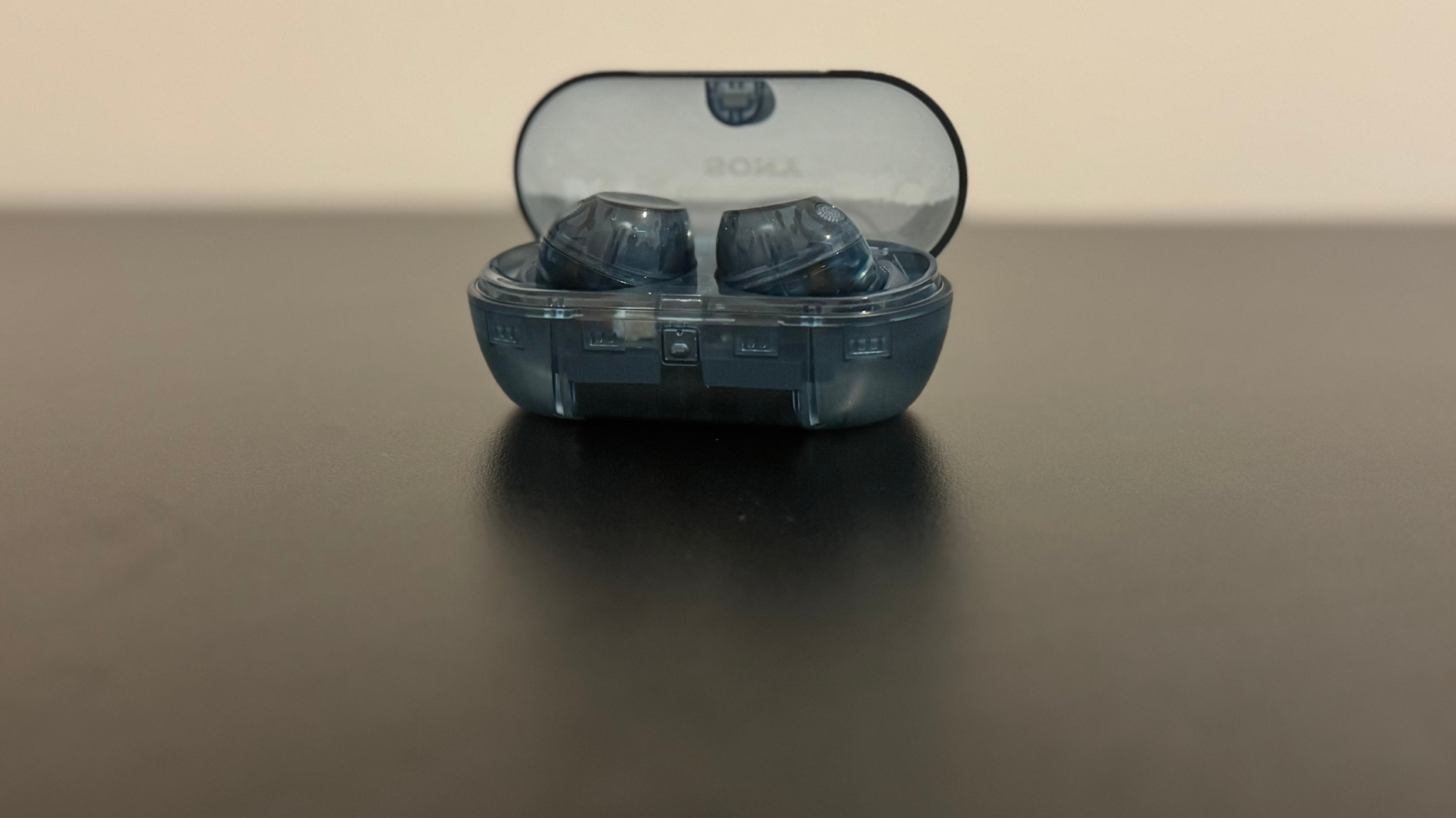Songbringer is a speedrunning-friendly and fun sci-fi Zelda-alike
Every six-letter word is a new set of dungeons.

In Songbringer, you type in a six-letter word that's used to generate a world for a Zelda-style game. Share this world seed with a friend who's also playing, and you'll find the same shards of story in the same locations, identically-placed dungeons and so on. It's a novel wrapping for a game like this, with an explorable sci-fi overworld and dungeons to slash through. I vainly used the word 'SAMUEL' as my Songbringer seed, and got lost right away, which seems like adequate punishment for my blatant narcissism.
The 2D Zelda games have you ticking off the dungeons one-by-one and picking up the tools needed to progress to the next part of the world along the way. Here, you're not required to play the dungeons in any order, which ends up being one of its major strengths. If you're not quite tough enough to topple a dungeon's boss with the tools you have, you can explore other locations around the world until you've found more health and better stuff to help you get the job done. Being more open-ended stops it from feeling too much like Nintendo's series.
I expected variants of the standard Zelda tools like the boomerang and bombs in Songbringer, and they're indeed here in different forms: a flying top hat and sci-fi-looking explosives. You also get buffs to increase the speed of your sword swipes, drones to map out the surrounding areas and the ability to blink. The power curve feels pretty nice: in just over an hour, an impossibly enemy-populated room in a dungeon became quick work. The idea of sharing world seeds gives it a lot of speedrunning potential, too. Developer Nathanael Weiss has produced one based on the world seed 'WIZARD' to get things started.

There are undoubtedly some shared influences with Hyper Light Drifter, though it's not nearly as hard, despite a tricky opening 30 minutes while you're looking for your first weapons. I also found the in-game map, which is just a very simple colour-coded grid, to be useful in only a barebones way, which is almost certainly the point. If you're after an extra challenge, you can turn permadeath on.
The sci-fi setting is neatly done: you're on an alien planet where eating cactuses causes your character, Roq, to hallucinate, revealing the locations of items and secret areas. You're joined on your adventure by a robot pal, Jib, and while the humorous interplay between them felt a bit forced at first, I warmed to the game's writing and humour. Other characters can be found around the world, too, along with sincere little bits of backstory that give Songbringer some narrative drive.
I can see myself playing through Songbringer once or twice, depending on how different a replay feels, and probably not more than that—but this is more a personal preference than a slight on the game. The procedurally generated element is a nice hook, but I'm more into the idea of it giving you one very memorable run at a Zelda-style game than loads of different ones. Songbringer feels authored enough, regardless of how the map is created, to convincingly offer that.
Songbringer is out now on Steam. If you're interested in more procedurally generated Zelda fun, check out my piece on Swords of Ditto, which offers a similar deal but with couch co-op.
Keep up to date with the most important stories and the best deals, as picked by the PC Gamer team.


